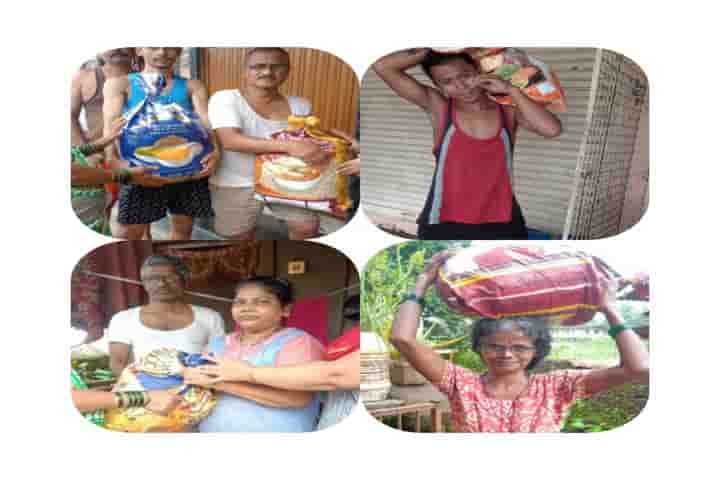Rising to the occasion, volunteers and young people of non-government organisations and hobby clubs, helped and saved several lives during the recent floods in Chiplun and Khed areas of Maharashtra.
Putting their lives at risk, they swam hard to save lives, pushed the speedboats in water moving at high-speeds, to conserve precious fuel, and distributed food and water to those dislocated due to the deluge. These are the local volunteers who turned to angels of mercy and help in Khed and Chiplun regions.
Recalling their rescue operations, Gautam Bashte, Secretary of Ratnadurg Mountaineers told India Today: "It was an adventure we weren’t exactly ready for. A boat got stuck on the roof of a house; our volunteers had to pull the boat after we had rescued a person because we were running out of fuel but we managed to take at least 70 people to safety.”
Scenes like the one described were in plenty. Malvan fishermen swam against water currents to save lives, Ratnadurga Mountaineers young men pulled boats in churning waters, and activists like Pankaj Shobha Dalvi quickly packed and despatched food and water for the stranded.

What is heartening to know is that the assistance came almost immediately for these groups the moment water levels in Chiplun’s neighbourhoods started swelling, setting activity on social media platforms and messenger apps abuzz.
From boats to bottled water were mobilised for these areas. Save Konkan Movement, a Facebook group, started coordinating donation of food, medicines and materials, while others put up shelters in community centres and colleges to locate rescued people and others set up community kitchens to ensure no one goes hungry.
Fishermen hailing from Malvan, located 230 kilometres away, arrived with their boats to rescue people from deep waters. Dalvi, who is the founder of Konkan Alert and a social activist said: “The region was cut off from the rest of the State because of landslides and floods. Even when the NDRF teams came, our local youngsters trained in rescue measures were accompanying them around. The locals know the area and the problems the best.”
Along with his colleagues and friends, Dalvi set up a community kitchen to pack cooked meals and clean drinking water for the flood affected people. “People cannot cook there because their homes have been ravaged by muck which is still a few feet high. What they need immediately is mineral water and dry snacks,” remarked Dalvi.

Besides Malvan and Veldur fisherfolks, Raju Kakade Help Academy members were also on the spot as they swung into action to check landslide debris for survivors. Also deep sea divers and those familiar and well versed in rescue and relief operations were summoned from Khed, Guhagar and Chiplun to help not just flood victims but also helped them recover their belongings.
Visuals of the floods and the affected saw generous donations pouring in from all across the State and Mumbai. Food, medicine kits, rice, pulses, clothes and household provisions received were neatly made into relief kits for distribution by volunteers.
Talking about this, Laxmikant Khobrekar, Secretary of the Nath Pai Sevangan in Malvan, which distributed more than 300 food kits in the region, observed: “People have lost all their food grains so we have made grocery kits along with medicines and candles. The first batch was sent to the affected areas in Ratnagiri a day after the floods.”
That is not all, as there were several young men and women helping residents to clean their homes which the floods filled with dirt and mud, while others helped people to get their vehicles into action.
In the midst of all this, people of the area in one voice demanded for well trained disaster management teams consisting of men and women to be set up. Dalvi on this point told IT: “We can save lives immediately instead of waiting for official help. Stationing disaster management teams won’t help. We need trained locals who understand the terrain and the problems of the region well.”




















